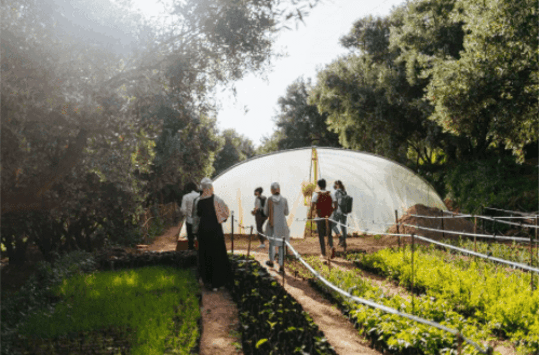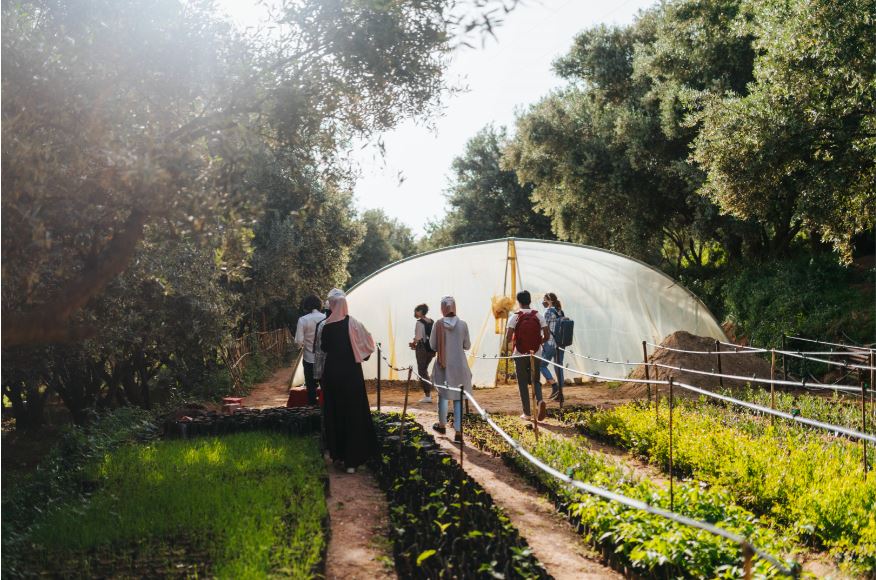People’s Participation Decides the World’s Environment

People’s Participation Decides the World’s Environment, Al Bawaba.
• Arabic: Cawalisse, 04 June 2021.
By Yossef Ben-Meir
Marrakech

The fruit tree nursery management by the Takherkhourt Women’s Cooperative in the Marrakech region of Morocco (High Atlas Foundation, 2021).
Recognizing this week’s World Environment Day reminds us of the evolution of the concept of sustainable development since the phrase was coined in a 1987 United Nations’ report. At that time, sustainable development concentrated on the idea of natural resource management and how humanity must not consume the sources of our sustenance to an extent that any harm is brought upon our collective future.
However, much has been learned since that reminder of the pivotal notion to help secure our continuity on Earth—lessons that are important to share on this year’s World Environment Day. Certainly, environmental considerations and perspectives remain a crux within the concept and practice of sustainable development.
However, time and evaluations also reveal that matters of cultural relativity, or the distinct priorities of any local community or neighborhood based on their specific circumstances and outlooks of life that they bear, infringe upon the extent sustainability of projects and initiatives can manifest. The way we cultivate our food and the choices we make regarding our production and consumption matter. If growers also process their yields and small farming landholders can indeed thrive, there is also a powerful consequence on life’s durability.
Clearly, political circumstances and how governments at different tiers of society emphasize the different services and goals in their public budgets impact the vitality of people’s growth actions. We see the technical capacities, variability of local know-how, and the dependability of enterprises on domestic or international technologies also factor into sustainable development.
Just as gender inequality is a global and historic cruel reality, it also exists in full measure in the places where we live, and it profoundly determines sustainability of our livelihoods and natural world. Conflict and peace, never-ending economic cycles, weather patterns and climate, emotional and mental well-being, family relationships (however contextually defined), the manner in which we share or do not, even our views upon those who have lived before us—all of these matters and more are determinants of not just our earthly but also of our local communities’ sustainability.
Today’s definition of sustainable development is a composite of all the diverse factors of life and a function of how we live. Yes, to that of the all-important natural resources, as was established by the United Nations’ 1987 statement, and also yes to so much more. If sustainable development understood as such crosses over into the ideals of World Environment Day, then even as conceptualizing it is important, experience tells us that doing so does not necessarily equate to practical actions for positive change.
Time and evaluations have also shown us this: to move forward, all these different perspectives needed for creating contemporary sustainable development, which is multidimensional and complex, require the inclusive participation of the people. Further, the support of all sectors and administrative tiers helps actualize communities’ planning, design, implementation, and management of growth projects that enhance their well-being.
People’s participation is synonymous with sustainability because their broad inclusion delivers the wide-ranging points of view necessary for sustainability to embody the diversity of qualities. The participation and control of development by the benefiting people is in fact the only assurance that they will interject the contextually-rooted and ranging dimensions of life in order for adaptive and appropriate development to take hold.
In sum, World Environment Day is about all people’s determination of their own growth fate, and as such all ships of life on Earth can then rise with the tide of all our self-discoveries and the fulfillment that they bring.
Dr. Yossef Ben-Meir is a former Peace Corps Volunteer and president of the High Atlas Foundation.